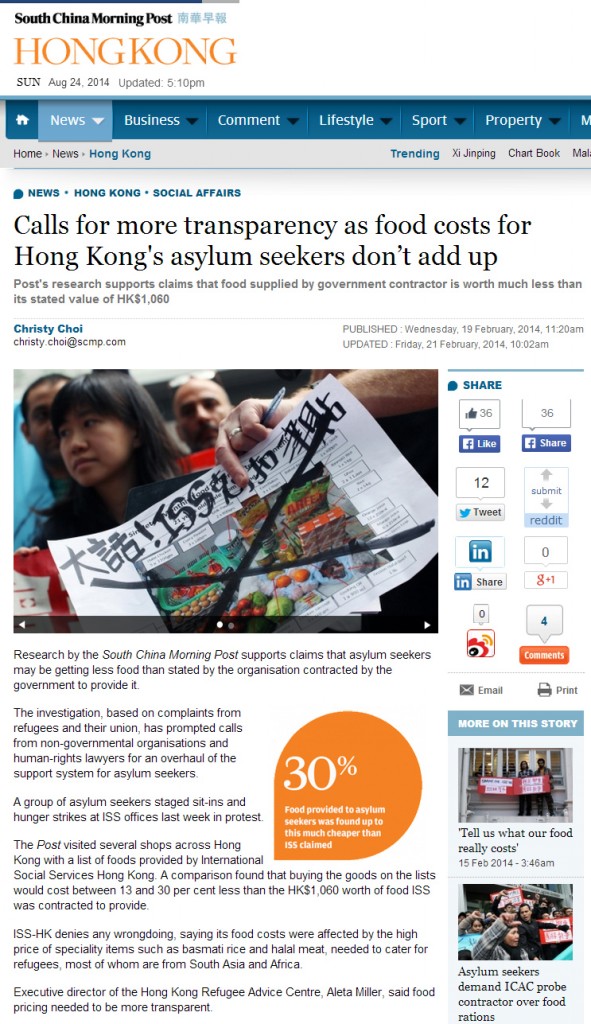
The problems plaguing the food distribution to refugees were raised again at the Refugee Union’s bi-monthly meeting on 20 October 2014. Refugees suffer a grim, insurmountable reality despite the promise of a fair asylum system made by this world-class city.
The government takes a firm stance in ensuring that stringent measures make Hong Kong inhospitable to those seeking asylum with the goal of deterring others in their footsteps. It is well-known that refugees are prohibited from working while forced to make ends meet with 1500$ in rent assistance and 1200$ in food rations. But do they even receive this little?
The problems relating to the food distribution system are less quantitative (Are 40$ a day enough to eat?), than structural (Do refugees receive 1200$ a month in groceries?) and administrative (Why do distribution failures persist?). Members of the Refugee Union expressed strong discontent at the in-kind food program that fails to deliver the value, quality and variety claimed by the authorities.
It is widely reported that law enforcement agencies are looking into this problem and have yet to either confirm or deny claims as researched and reported by the media, including South China Morning Post and Metro Daily. And yet refugee lament that their monthly food collections are still largely worth less than 1200$ a month. Has the government retreated from its responsibility to monitor and control the refugee food program?
Further, complaints were raised about infants who do not receive enough milk formula and some toddlers who are not provided with solid food at eighteen months of age. Mothers’ pleads to case workers are ignored month after month and desperate parents are compelled to beg for assistance when fair assistance is sidestepped without reasonable explanation.
Following recent reports that the food program contracts were renewed for nine months (possibly to account for three month’s investigation), it is apparent that the government has no plans to improve the system by providing refugees with cash, or alternatively issuing coupons. Without a new service tender, the current inadequate program will continue till mid-2015.
On the face of it, the absence of noticeable improvements seem to suggest that the government is satisfied with the implementation of in-kind food distribution to the refugee community. The Refugee Union exposed malpractices that raised serious concerns, but after the noise died down questions were met with silence and accusations were swept under the thick carpet of government bureaucracy, some might say, indifference.
Vision First is concerned that salient answers may be hidden in the contract between the Social Welfare Department and ISS-HK for welfare provisions to the refugee population. Despite repeated request by the media and several lawmakers, this key contract remains a government secret, as if it were a matter of national security, kept from the public eye for reasons that fly offensively in the face of transparency and accountability.
In light of the above, digging beneath the issue of food value uncovers problematic issues that, in our view, cannot be resolved without dismantling the entire refugee welfare system to implement programs that are based on wellbeing not deterrence, on legal concerns not immigration policies, on social justice not criminalization, on dignity not immiseration.
While injustice is the norm for refugees, the question we should ask is, why do refugees’ complaints so often fall on deaf ears? Who benefits from these arrangements?


